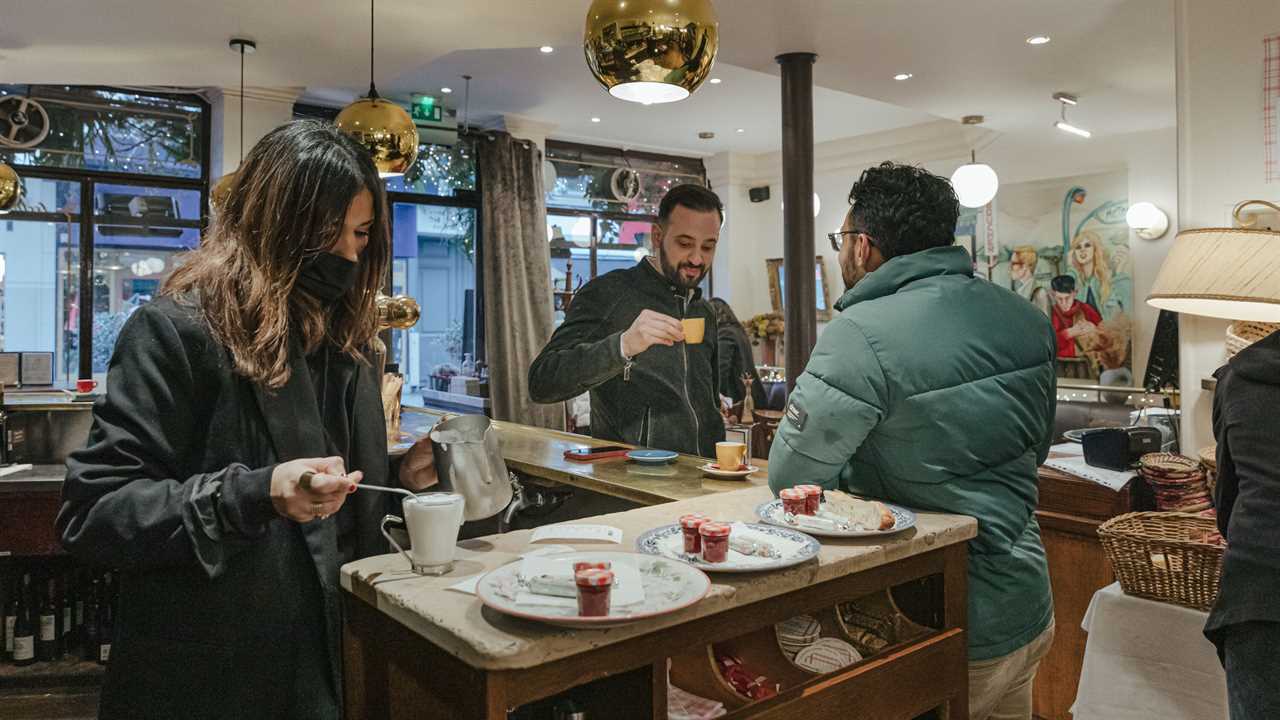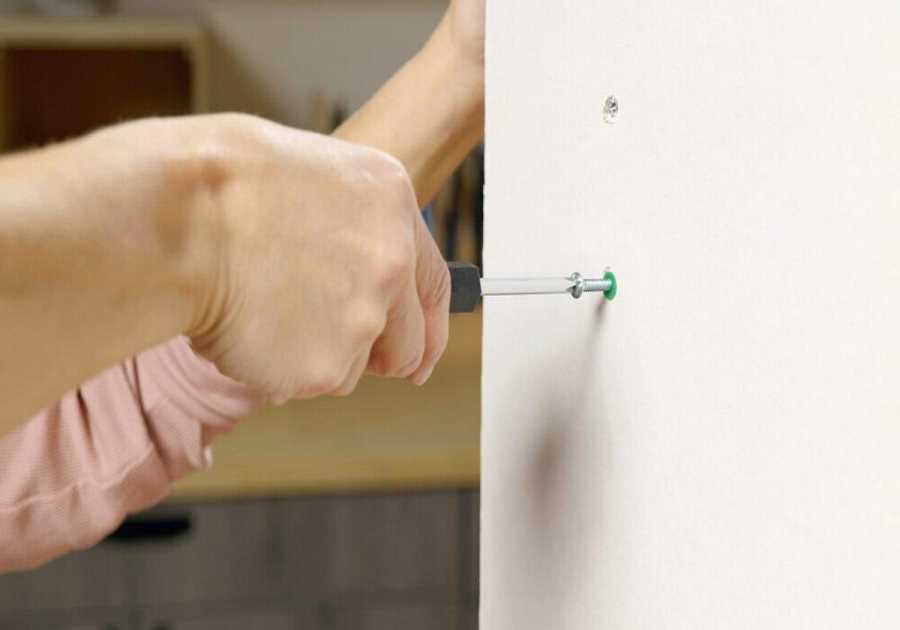
PARIS — The deal was simple: Get vaccinated and get your normal life back.
In a country with high levels of misgivings about Covid-19 vaccines and citizens quick to challenge authority, the deal was an unexpected success. It turned France into one of Europe’s most vaccinated countries, quashed street protests by government critics, and boosted President Emmanuel Macron’s re-election bid as a semblance of normal life returned. Even die-hard skeptics became believers — for a while, at least.
“I told myself, great, everybody’s going to get vaccinated and, in three months, we’ll all be OK, we’ll get our freedom back,” said Marc Olissone, 60, who was visiting Paris from northern France and had initially resisted getting a shot. “I got vaccinated because that’s the only way I could go to the movies or visit friends in Paris.”
“I believed,” said Mr. Olissone, a former entertainment industry producer who has worked at a funeral home since the start of the pandemic. “But I don’t believe anymore.”
As the Omicron variant tears across France, it is straining the unwritten social contract underlying the government’s fight against the virus and undermining the assumptions that Mr. Macron — and many world leaders — relied on. More than previous variants, it is redefining what it means to be fully vaccinated, creating new urgency about booster shots, and elevating the hurdles to gain access to a normalcy that is proving fleeting and, increasingly to many, illusory.
Even if vaccines are not as effective at blocking Omicron infections, scientists believe they help keep the illness mild for most people and early studies suggest they are keeping most people out of the hospital. And although health officials still see vaccines as the path out of the pandemic — especially if more people get shots — their availability has not ended the scourge as quickly as hoped.
That seems certain to complicate the ability of leaders worldwide to keep their exhausted citizens obeying Covid rules. In France, the stakes are high for Mr. Macron, who made a bet over the summer on the twin powers of vaccines — which he hailed as a “trump card that changes everything” — and a health pass that allowed people, finally, to eat and socialize indoors with relative safety.
Even now — as France reported 206,243 new cases in the past 24 hours on Thursday, the second consecutive day over 200,000 — the government has not wavered. On Monday, it resisted pressure from doctors and scientists to impose a New Year’s Eve curfew or postpone the start of school next week, rejecting the stricter restrictions put in place recently by many of France’s neighbors, though the city of Paris announced Wednesday that mask-wearing outdoors would become mandatory again.
The government has also shortened the required delay between a second shot and a booster. In the past month, it has reduced the wait from six months to five, then four, and finally three.
“Next it’ll be every two weeks?” said Olivier Toulisse, 44, a resident of eastern France who was strolling on the Champs-Élysées in Paris. “I had a lot of hope in vaccines, honestly. I’d really believed that they were going to pull us out of this.”
Franck Chauvin, the president of the government’s High Council of Public Health and a member of a scientific panel that advises Mr. Macron on the pandemic, acknowledged the corrosive effect that Omicron has had after a relative period of peace since last summer.
“The appearance of new variants, the debate around vaccinations — and we’re seeing it now with Omicron — all of this forces us to redefine this social contract,” Mr. Chauvin said in an interview.
Beyond the vaccines, Mr. Chauvin said France would likely need to focus more on “greater civic responsibility,” by urging more caution in social interactions. He said this evolution was made evident when many citizens got tested before joining their families for the holidays.
Stewart Chau, an analyst for the polling firm Viavoice, said public support for the government’s handling of the pandemic has started to slip. “This social contract will not work if there are no tangible results behind it,’’ he said.
Approval of the government’s handling of the crisis began rising last March as vaccination began taking off and peaked in August, at 50 percent, following the introduction of the health pass, but has declined in the past month, according to the Elabe polling firm.
The Omicron challenge has also come at a particularly fraught moment, when the government’s push to vaccinate children between the ages of 5 years to 11 years, though voluntary, has raised new worries, and schisms.
The Coronavirus Pandemic: Latest Updates
- In Sydney, Australia, the fireworks go on.
- Omicron wave brings new rules for New Year’s Eve celebrations.
- South Africa says that it has passed its fourth wave of cases, and counts few added deaths.
Since the early stages of the pandemic, the French, like others elsewhere, have been asked to think and act for the greater good: Wear a mask, not necessarily to protect yourself, but others. Protect the elderly. Get vaccinated to stop the virus from circulating.
Frédéric Worms, a French philosopher who has studied the growing fatigue resulting from the pandemic, said the introduction of vaccinations for children between 5 and 11 has sharpened the debate over the self and the greater good.
“It could push people into a free-for-all,’’ he said. “There is a strong anguish, a psychological dimension, in the fact that we would sacrifice ourselves to save our children.”
According to a poll by Elabe, more than two-thirds of parents of eligible children are opposed to vaccinating them while 51 percent of the general population is in favor. The experience in the United States and other countries, where significant numbers of children of this age group have already been vaccinated, shows side effects are rare. But many parents are reluctant to expose their children to the new vaccines because the very young rarely fall ill from the virus.
In a park in the 11th arrondissement of Paris, Sandrine Gianati, 40, watched over her two sons, aged 5 and 7. She, her husband, her relatives — all had been vaccinated, except for her children.
“Me, I did it to protect others, out of solidarity,’’ she said. “And when I see the unvaccinated still don’t want to get vaccinated, I accept that, it’s their choice. But I don’t want my children to be vaccinated for adults who refuse to be.’’
Seventy-seven percent of French have received at least two doses, or 90 percent of people 12 years old and over. But some 4 million adults have yet to get a single shot, and the unvaccinated disproportionately make up those who are hospitalized or dying.
The Coronavirus Pandemic: Key Things to Know
The global surge. As the Omicron variant sweeps across the planet, the global tally of new coronavirus cases has for the first time passed one million per day on average. The previous daily average global case record set last April has already been broken three times this week.
“I don’t want to sacrifice my children in the name of solidarity,” Ms. Gianati said, believing that it is too soon to understand the new vaccines’ long-term effects on the very young. “Me, I tell myself that I’m married, I had my two children, I’ve lived my life, and, if I have problems later on, that was my choice. But I don’t want to impose my choice on my children, who are too young to make their own decisions.’’
Omicron appears to be shaking, again, people’s faith in the government’s handling of the pandemic. In the early stages, the government’s floundering response — and especially its misleading and contradictory statements on the wearing of masks — created deep mistrust among many French.
Just a year ago, as France kicked off its vaccination campaign, an Ipsos poll of adults in 15 countries found that trust in a Covid-19 vaccine was lowest in France. Only 40 percent of French said they would get vaccinated, compared to 77 percent in Britain and 69 percent in the United States.
But the government pushed ahead with a campaign whose full strategy would emerge over the following months. Members of the president’s scientific advisory panel, including Mr. Chauvin, provided clues in an April article in The Lancet.
“Crucially,” they wrote, “the new approach should be based on a social contract that is clear and transparent.”
In July, Mr. Macron laid out the terms of the deal in a national address.
“For our protection and for our unity, we must move to vaccinate all French,” he said, “because that is the only path back to a normal life.”
Get vaccinated and get a health pass, was the message. The unvaccinated would gradually be pushed out of public spaces.
The policy triggered protests and stirred worries of a mass movement, like the Yellow Vests, whose demonstrations against the government’s economic policies paralyzed much of France three years ago. But the protests petered out as the government struck a winning balance between carrots and sticks.
Today, less than four months before presidential elections, the government is betting it can maintain that balance in the face of Omicron. It asked the French to get their booster shots more rapidly than planned. It is also moving to tighten the eligibility of the health pass by no longer allowing people to obtain it with negative tests but only with proof of vaccination.
Disclosing the new terms of the deal, Prime Minister Jean Castex made no promises of a return to normal life. Rather, Mr. Castex said, “All of this feels like a never-ending movie.”
Title: Omicron Strains France’s Social Contract on Covid
Sourced From: www.nytimes.com/2021/12/31/world/europe/covid-france-omicron-vaccines.html
Published Date: Fri, 31 Dec 2021 06:00:09 +0000
Did you miss our previous article...
https://rsssuperfeeds.com/viral-news/the-uk-is-on-a-war-footing-against-viruses






